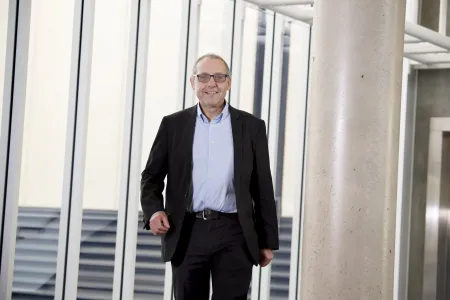News
CDU joins project to recycle bromine and antimony from plastics
Charles Darwin University (CDU) is joining with The American Chemistry Council’s (ACC) North American Flame Retardant Alliance (NAFRA) and the United Arab Emirates University (UAEU) in Al Ain to develop new processes for recovering and recycling bromine and antimony from flame-retardant plastics.
It is expected that the results of the project will provide laboratory and modelling data to advance the technology to a pilot-plant stage.
Co-project leader Charles Darwin University (CDU) Professor Bogdan Dlugogorski of the Energy and Resources Institute (ERI) said CDU’s strong expertise in energy and the environment will help guide this pyrolysis research effort.
“The project aims to test new ways of removing bromine and antimony safely and effectively from plastics prior to recycling the polymeric matrix into monomers and valuable fuels,” Professor Bogdan said.
Pyrolysis is a process of chemically decomposing organic materials at elevated temperatures in the absence of oxygen — often used for the recycling of plastics included in waste electric and electronic equipment (WEEE) — to produce valuable materials from these recycled materials.
A key challenge with WEEE recycling involves its inhomogeneous composition as WEEE consists of various materials including, metals, glass, and plastics that need to be separated before being reprocessed.
Co-project leader and United Arab Emirates University Associate Professor Mohammednoor Altarawneh said the underlying aim of this initiative is to design a process that recycles plastic with near-zero environmental pollution
“The challenge is to underpin operational conditions that eliminate formation of bromine-bearing hydrocarbons and enable a complete fixation of bromine in the form of metal bromides, from which the metallic content could be easily separated and recovered,” Associate Professor Mohammednoor Altarawneh said.
Guided by NAFRA engineers and scientists, CDU and UAEU will collaborate on the research, with experiments being performed in Darwin and quantum chemical calculations completed in Al Ain, by doctoral candidates at each of the universities.
The American Chemistry Council’s Director of Products and Technology Ben Gann said Professor Dlugogorski and Associate Professor Altarawneh are prominent scientists and chemical engineers recognised for their expertise in chemical recycling and environmental protection.
“NAFRA is pleased that they are leading this initiative that will further the role of flame retardants in the circular economy and help enhance sustainability of these important safety tools,” Mr Gann said.
Related Articles

First “hype cycle” of AI development put tech above humans
Users around the world have rushed to adopt artificial intelligence - especially in safety-critical fields - but a new study has revealed the hype has prioritised technology for technology’s sake instead of human-centred development.
Read more about First “hype cycle” of AI development put tech above humans
Nanoplastics hindering cognitive abilities of fish, international research shows
Nanoplastic exposure can impair the cognitive abilities of fish and could lead to significant impacts on marine species’ ability to survive, according to a new international study.
Read more about Nanoplastics hindering cognitive abilities of fish, international research shows
New project to grow Indigenous aquaculture on one of Australia’s largest islands
An Australian island’s efforts to improve food security and transition into a blue economy will be bolstered by a new project to propagate a nutritious and increasingly popular fish.
Read more about New project to grow Indigenous aquaculture on one of Australia’s largest islands
